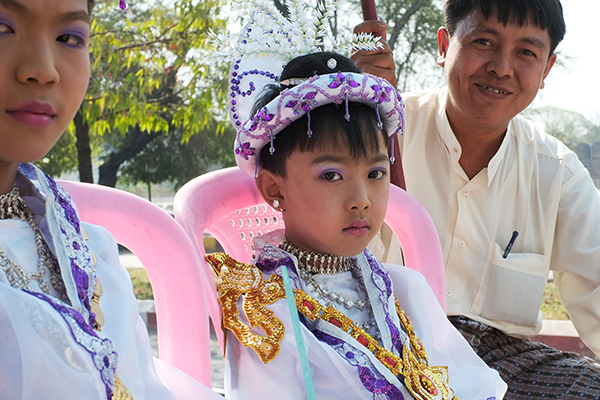In myanmar, boys all must experience one or several times of “monk-hood”. They will leave their home and be sent to a monastery or pagoda to practice before deciding whether to become a lifelong monk or give up the robe after that.
Shinbyu Pwe – featured ceremony
In early morning, new novices are applied makeup, wearing Burmese traditional costumes, and are taken to a featured place to begin the ceremony. This is an opportunity that parents be able to be proud of their children.
Organizers will announce the Shinbyu Pwe ceremony and open music to call upon citizen to donate alms bows and robes for new novices. After the announcement, the children ride horse decorated splendidly, shielded from the sun by a parasol, and marching around their neighborhood to the monastery or pagoda. The horse is led by an orchestral band headed by a clown with a moustache called U Shwe Yoe holding a parasol and dancing merrily.
The children have to wear the costumes such as a royal prince or king and usually ride horse. They symbolize the image of prince Siddhartha when he renounced the world, as he left his palace (also his family, wife, newborn son, his title and the world he used to be) to go into the forest and commence the intense meditation until becoming the enlightened person (Buddha hood).
However, some novices could be taken on the shoulder of their shut relatives if they cannot afford to ride horse, while it could be exaggerated by letting the children ride on elephant back or more magnificent on Toyota Land Cruiser Cygnus depending on budget of every family. In fact, the form of riding horse around neighborhood previous going into a pagoda now just takes place in rural areas or small cities. In broad cities such as Yangon, families usually use cars to take their children into pagoda.
In a procession of Shinbyu Pwe, parents of the novice stand at top, carrying all necessary items that he will need at the monastery (robe, alms bow, hand fan, water filters and razor, all that 5 requisites) and some add-ons (not a must) like grass mat, pillows, blanket, etc. Behind, sisters or the most charming belles will carry on their hand a betel box and flowers. The father of the novice usually holds a triangular bell, prominent at a certain pace in accordance with his walking time. He will say “Amyah” (means I share my merit by making this deed) while people who hear the bell ring may say Sadu for three times (means well done…well done… well done).
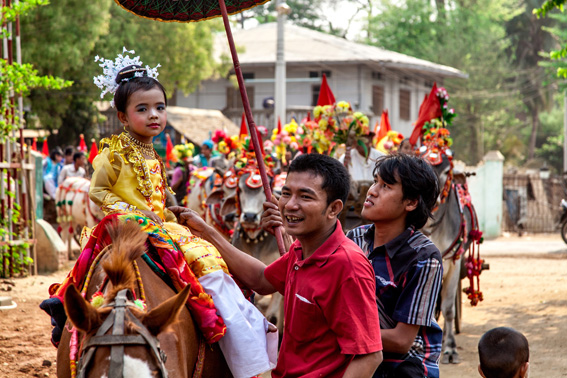
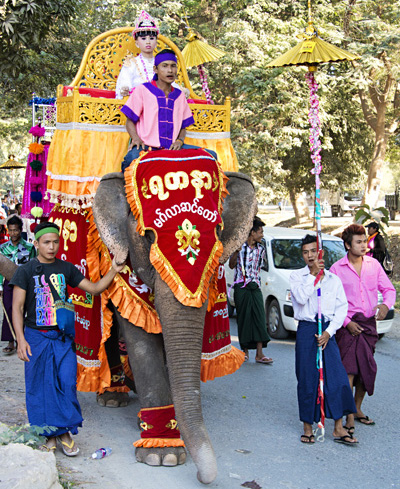
And a boy on elephant back
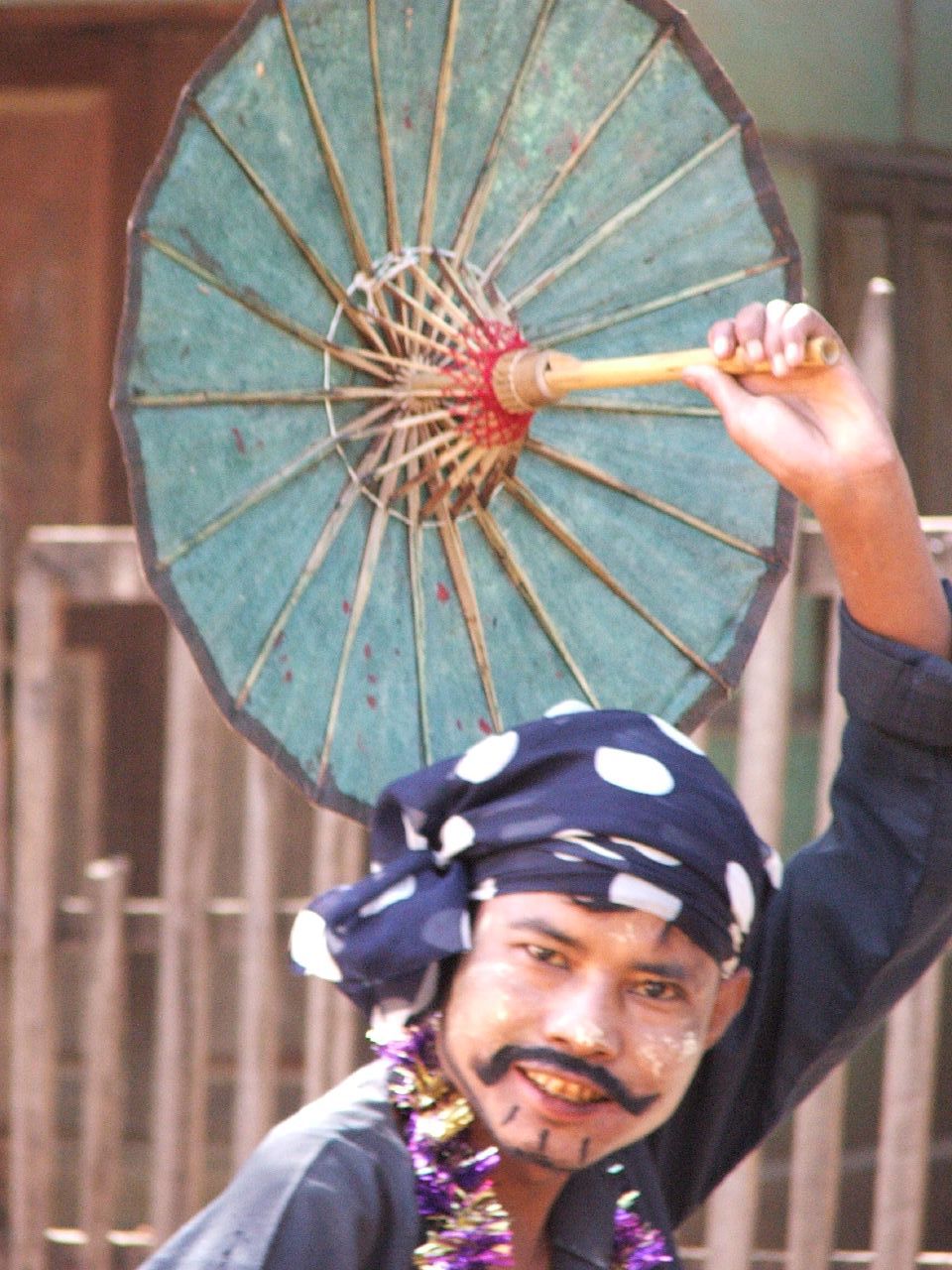
U Shwe Yoe – clown dance (Photo: Moe Swe via flick)
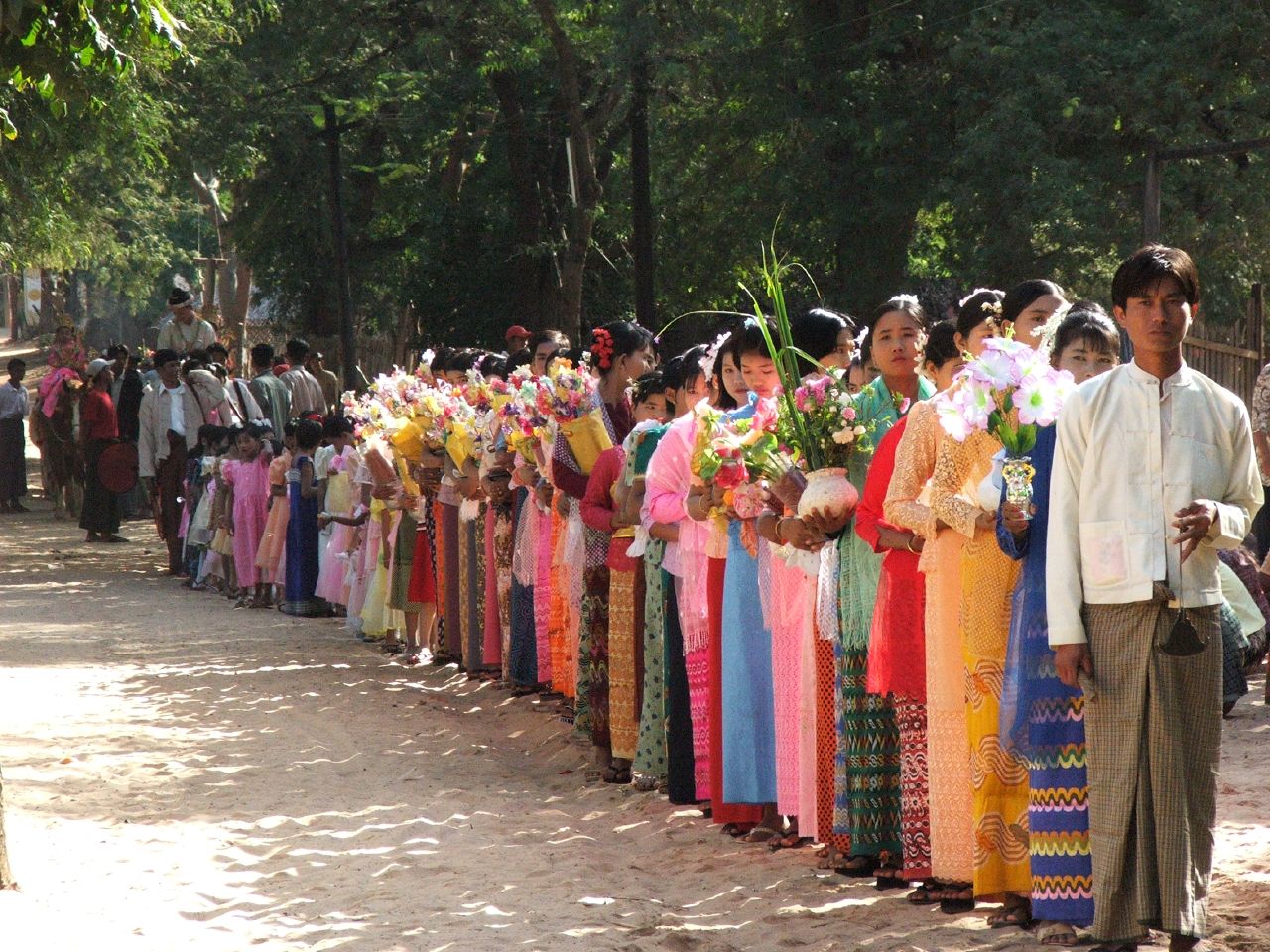
A Shinbyu procession, the father holds a triangular bell and strike,
pretty belles take on hand a betel box or flowers. (Photo: Moe Swe via flick)
Shinbyu Pwe ceremony in details
In monastery, Buddhist monks will explain the benefit of novitiation to parents and children. Subsequently, boys will be shaved their head, wearing a Buddhist robe. As from that moment, the child will not inclue any property. With bare-head and bare-foot bringing along a bowl, he will travel beg for alms every morning. In the remaining time, novices will learn Burmese scripts, Buddhist scriptures by Pali language and everything concerning to Buddhism. Burmese citizen possess the notion that “when a child could drive birds away in fields, it means that he or she can go into a monastery or pagoda”. But in fact, children be able to become a Buddhist novice as they are able to recite Buddhist scriptures by Burmese and Pali language. Boys normally must go into a monastery or pagoda by the age of 20.
Time length of monk-hood of a child is diverse, be able to be few days, few weeks or few years. A child also could become a novice in numerous times. Numerous children after going into a monastery or a pagoda, if this life is not suited to them or they want to return the secular life for further study or to be married, they will return home. Every month, monasteries and pagodas all possess novices secularizing to come back to the normal life. Of course, children getting diseases of cancer, scabies or asthma will not be permitted to become a Buddhist monk.
Formerly, novitiation ceremony was held lavishly in each family, so it is known as a costly festival. Burmese parents consider holding this ceremony as making merit. If parents do not have enough money to hold this ceremony, their relatives and friends will support a part of budget for them. Thingyan festival is the favorite opportunity to conduct this Shinbyu Pwe. But today, it is held all year-round, depending on picking of the suitable day and month of each area.
